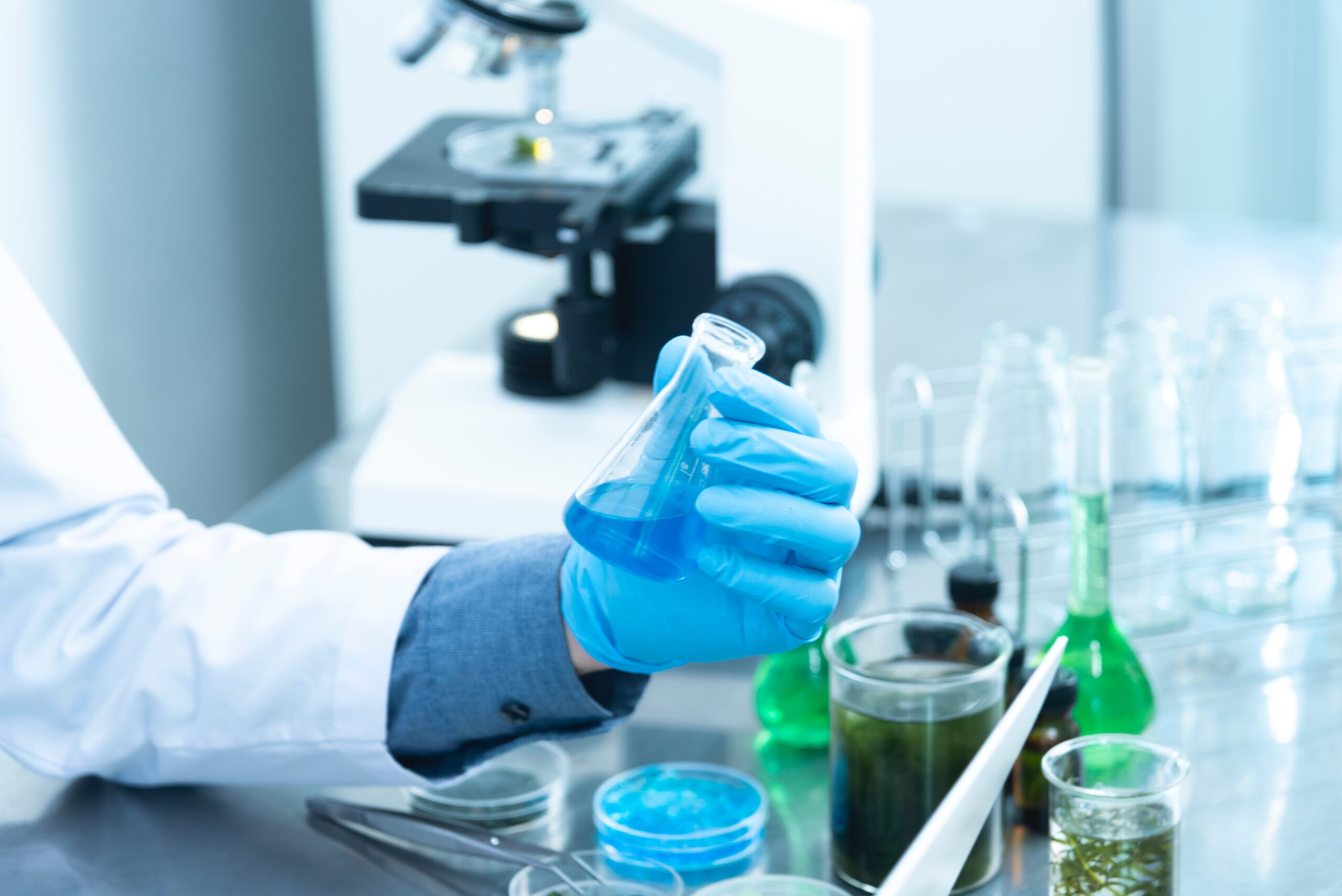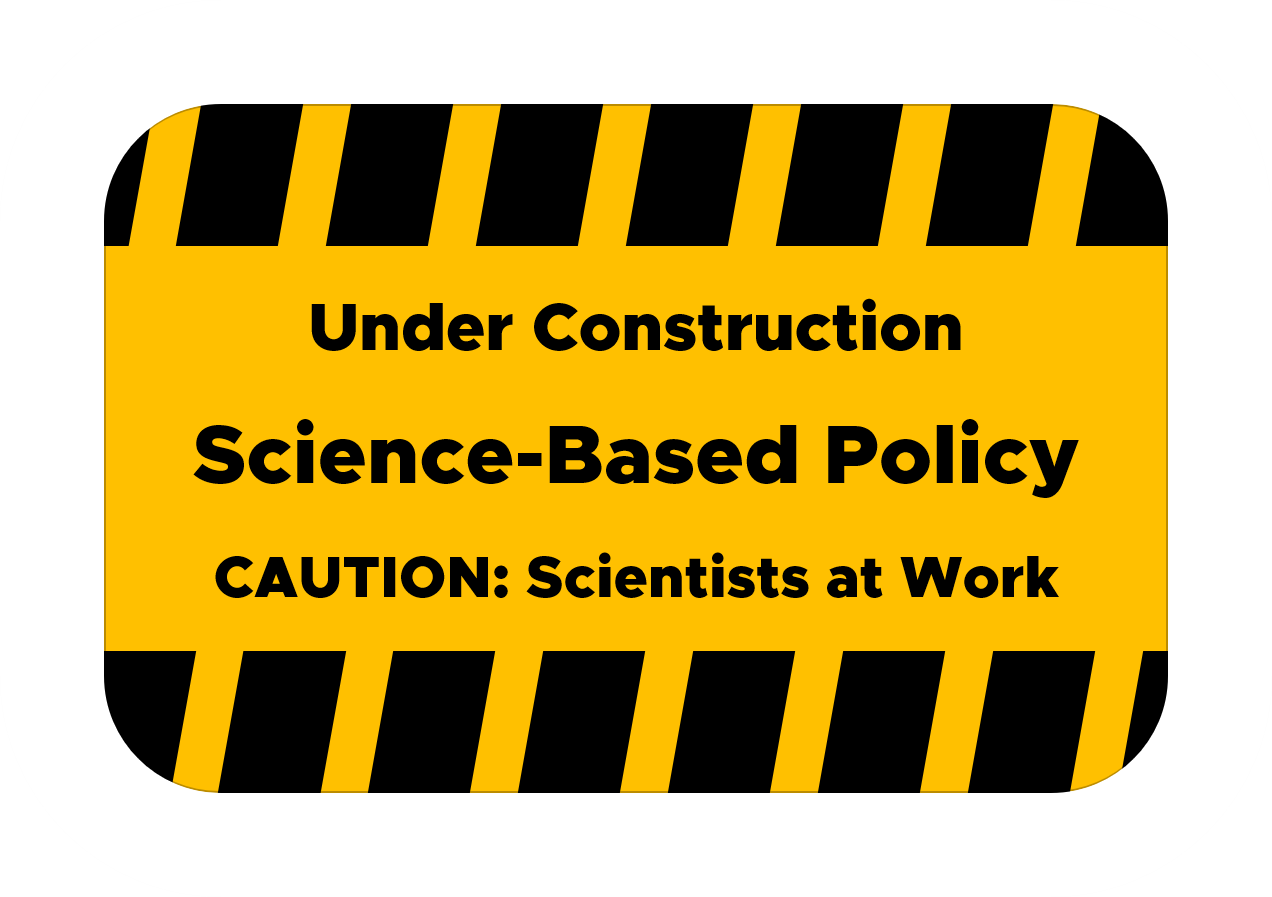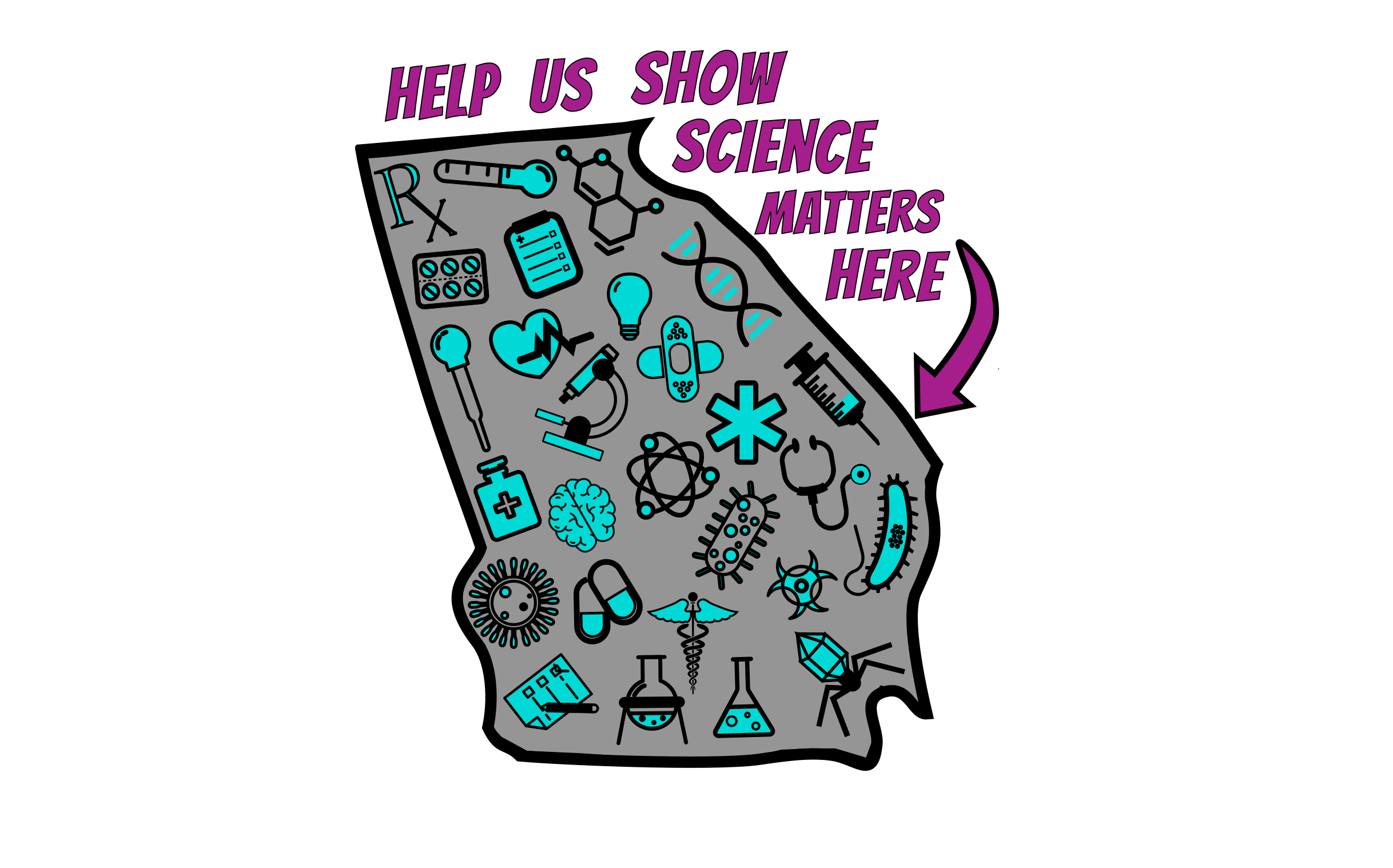January was a series of significant Wednesdays. Its hard to write anything else without mentioning…

Science in Georgia
By Claire Jarvis, PhD
Claire Jarvis is a science writer based in Atlanta, GA.
You can follow Claire on LinkedIn and on Twitter @StAndrewsLynx
If you were asked, “What cool science takes place in Georgia?” you might need time to think about your answer. The Peach State has many claims to fame…but its science sector isn’t usually what comes to mind.
However, there are plenty of scientists here, doing interesting and unique research. What are Georgia’s scientific strengths?
Public Health
The city of Atlanta hosts both the Centers for Disease Control and Prevention (CDC) and The Carter Center. Both of these institutions focus on disease prevention in the US and abroad. To eradicate a disease such as guinea worm, scientists first need to understand how the disease develops and spreads, then come up with drugs to thwart them.
Life Sciences
‘Life sciences’ is a broadly defined field that seeks to answer questions (big and small) about the natural world and our place in it. There are several big schools in our state, and they conduct a lot of life science research. In fact, in 2017, $537 million was given to Georgia universities from the National Institutes of Health (NIH). Life science (often called bioscience) companies include pharmaceutical companies, medical device manufacturers, and organizers of clinical trials. According to GaBio.org, in 2017 there were 32,040 people employed in the bioscience industry here in Georgia. The state is friendly towards big business, and the number of companies (and therefore employees) in the bioscience sector is likely to grow.
Health Information Technology
Health Information Technology is where medicine and computers intersect. How do you keep track of so many (electronic) patient records? Are there better ways to manage all the data hospitals collect, to spot trends in diseases before the doctors do? Information technology also involves designing new software and computers to meet specialized medical needs. This field needs computer scientists to do the designing, but also medical experts who understand the needs of healthcare companies. The Georgia Department of Economic Development reports that 225 Health IT companies are located in the state, which makes it one of our strengths.
Aerospace
The National Aeronautics and Space Administration (known of course as NASA) is based down in Florida at Cape Canaveral, so it makes sense that nearby states would also be involved in the business of space and flight. In fact, airplane and aerospace products are the number one international export from Georgia.
To make airplane parts, you need trained engineers, and Georgia Institute of Technology’s Daniel Guggenheim School of Aerospace Engineering is ranked second in the U.S. News & World Report Rankings. Every year, 1,200 students study there.
As you can see, Georgia has a science profile that’s distinctly its own. Georgia has a lot of strengths when it comes to science education, research, and jobs. All the more reason to support science at a local level!




